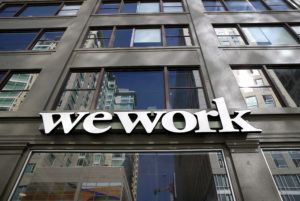WeWork may go down as one of the most overhyped companies in corporate history. Valued at nearly $50 billion at the start of the year, the BBC reports that it’s been acquired/rescued for a small fraction of that sum.
 Other companies associated with the digital economy have also had a rough time lately – especially those launching themselves on the stock market. It’s got so bad that some people fear a second dot-com crash. The original happened almost twenty years ago, when tech investors went into full-on panic mode. Could a renewed loss of confidence in this vital sector tip the entire economy into recession?
Other companies associated with the digital economy have also had a rough time lately – especially those launching themselves on the stock market. It’s got so bad that some people fear a second dot-com crash. The original happened almost twenty years ago, when tech investors went into full-on panic mode. Could a renewed loss of confidence in this vital sector tip the entire economy into recession?
For a calmer and deeper analysis, there’s a must-read piece by Derek Thompson in The Atlantic. His key point is that we need to draw a distinction between tech and what I’d describe as “tech adjacent” companies:
He goes on to describe WeWork as “a real-estate company caught wearing an Actual Tech Company costume before Halloween”.
Tech adjacent companies are a feature of “platform capitalism” i.e. the use of digital interfaces and other tech-y lures to orchestrate, and therefore dominate, real world consumer markets like taxi services (e.g. Uber) or holiday lets (e.g. Airbnb).
In a pure tech company, the development of new software/hardware is the end product and one that can be judged on its own merit. But in a tech adjacent company, the tech is a means to the real objective which is “owning” a market by controlling the exchange of information within it. However, the latter is hard to pull-off. Investors pile in hoping that it might happen, but if it doesn’t the bubble bursts.








Join the discussion
Join like minded readers that support our journalism by becoming a paid subscriber
To join the discussion in the comments, become a paid subscriber.
Join like minded readers that support our journalism, read unlimited articles and enjoy other subscriber-only benefits.
Subscribe